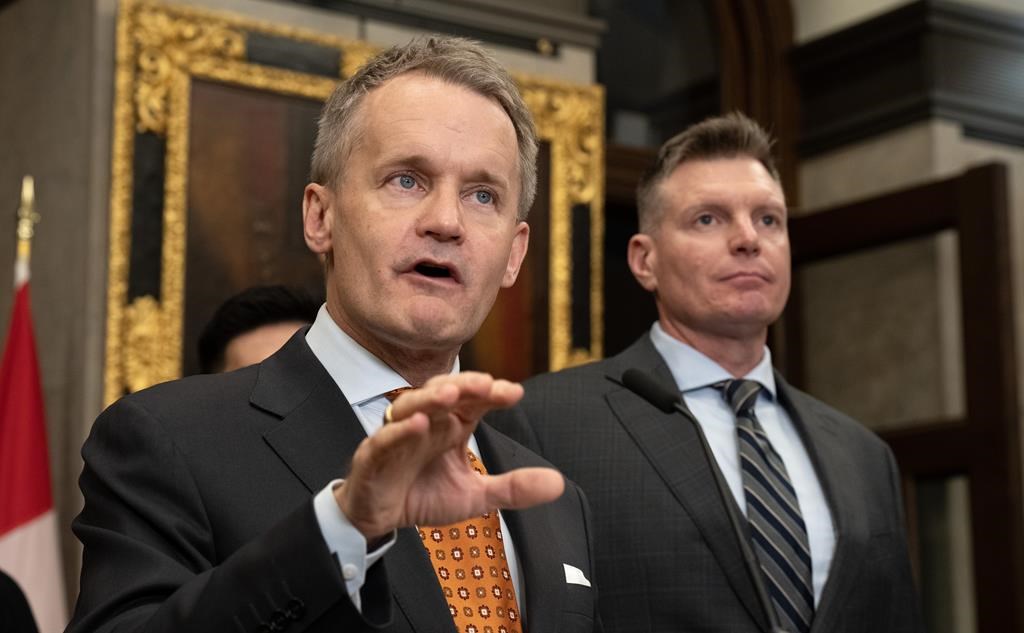Export Development Canada lends Newfoundland hydrogen project $128M

Posted Feb 28, 2024 02:54:54 PM.
Last Updated Feb 28, 2024 03:10:19 PM.
OTTAWA — The federal export credit agency has agreed to lend millions of dollars to a second green hydrogen project in Atlantic Canada.
Export Development Canada and World Energy GH2 say they have reached an agreement for a $128-million credit facility, a business loan similar to a line of credit.
The loan comes about two months after a similar agreement to provide $166 million to Everwind Fuels in Nova Scotia.
Both projects are trying to stake a claim as Canada’s most advanced green hydrogen plant, though neither has an in-service date on the table yet.
Canada signed an agreement with Germany in August 2022 to work toward producing and shipping clean hydrogen to Europe.
But Canada does not currently have any green hydrogen plants up and running.
World Energy GH2’s Project Nujio’qonik is to include two to three wind farms in and around Stephenville, Nfld., to initially produce about 250,000 tonnes of hydrogen a year.
Germany’s hydrogen strategy includes a plan to try and replace its coal-fired power plants with hydrogen over the next 15 to 20 years, and it needs to get most of that hydrogen from imports.
The Canada-Germany agreement set a bold target to start shipping hydrogen as early as 2025, but World Energy CEO Sean Leet said Wednesday his company is very unlikely to meet that schedule.
He said they are still working through various permitting and licensing processes in Newfoundland and can’t yet say when the infrastructure will be built.
He called the new loan for his company a “signature moment for green hydrogen in Canada.”
Labour Minister Seamus O’Regan, who represents a Newfoundland riding in the House of Commons, said there is a race to become a global hydrogen supplier and there is no time to waste.
“We need to get this project off the ground and signal to the world we’re in the green hydrogen game,” he said.
Green hydrogen is generally considered to be the most climate-friendly, as it is produced using electrolysis to extract hydrogen from water using renewable electricity. In most cases in Atlantic Canada, the proposed projects involve building new wind farms.
Hydrogen can also be produced from natural gas, but that process produces greenhouse gases.
If those gases are allowed to escape into the atmosphere, it is known as grey hydrogen. If they are trapped using carbon capture systems, it’s called blue hydrogen.
Germany generally only wants green hydrogen.
This report by The Canadian Press was first published Feb. 28, 2024.
Mia Rabson, The Canadian Press








